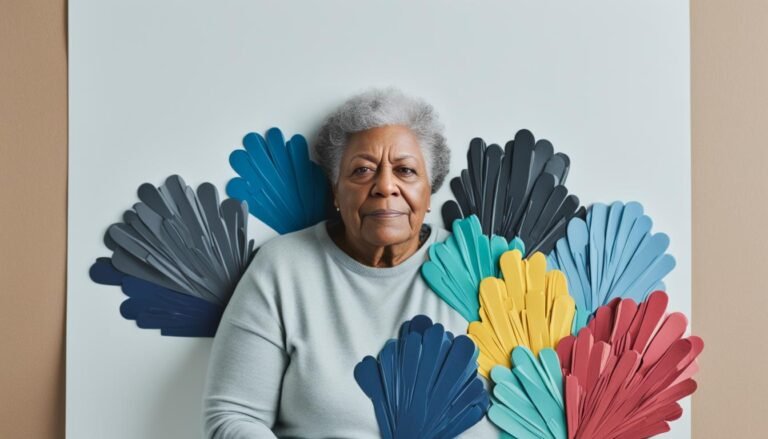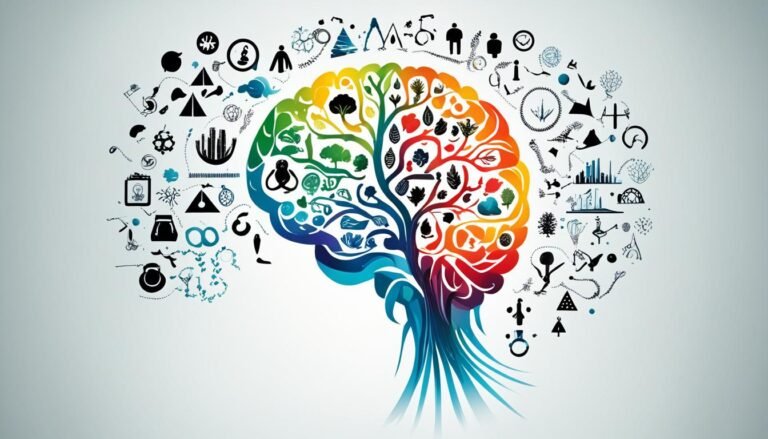What is African Centered Therapy?
African Centered Therapy is a culturally responsive approach to healing that is rooted in traditional African wisdom. It recognizes the unique experiences of individuals of African descent and employs traditional techniques to help them feel whole again. This therapy emphasizes the importance of understanding clients within their cultural context and creating a safe space for them to explore and heal. African Centered Therapy incorporates elements such as sensory experiences, virtual guided meditation, and relaxation spaces to facilitate relaxation and the release of underlying issues. It is a holistic approach that aims to empower clients to reclaim their power, discover their inner voice, unleash their creativity, and manifest their purpose.
How does African Centered Therapy work?
African Centered Therapy is a culturally rooted approach to healing that prioritizes creating a safe space for clients to unpack their thoughts and feelings. This therapy recognizes the importance of the environment and utilizes various elements to promote relaxation and comfort, allowing clients to release their issues and embark on their healing journey.
In African Centered Therapy, the therapeutic environment plays a vital role in supporting clients’ healing processes. By incorporating lighting, music, and aromatherapy, this therapy creates a sensory experience that fosters relaxation and emotional well-being. These elements help to establish a calm and supportive atmosphere, encouraging clients to release their emotional burdens.
African Centered Therapy embraces a culturally rooted psychology approach. It understands the significance of considering individuals within their cultural context and acknowledges the impact of trauma on the mind, body, and spirit. By addressing the trauma holistically, this therapy supports clients in their journey of self-discovery and healing.
This therapy encourages clients to reclaim their power, unleash their creativity, and manifest their purpose. By incorporating culturally rooted techniques and practices, African Centered Therapy empowers individuals of African descent to connect with their heritage, find their voice, and navigate life with resilience and strength.
“African Centered Therapy provides a safe space for clients to explore their emotions and cultural identity. By employing culturally rooted techniques and understanding the impact of trauma on the African diaspora, this therapy promotes healing and helps individuals rediscover their inner strength.”
Benefits of African Centered Therapy
- Creates a safe space for clients to explore their emotions
- Utilizes sensory experiences to encourage relaxation and comfort
- Addresses trauma holistically, considering the mind, body, and spirit
- Empowers individuals to reclaim their power and manifest their purpose
- Promotes self-discovery and cultural identity
By employing African Centered Therapy, individuals can access a culturally responsive approach to healing that acknowledges their unique experiences and provides the necessary support to help them thrive.
| African Centered Therapy | Traditional Psychotherapy |
|---|---|
| Recognizes the importance of cultural context | May overlook cultural nuances |
| Creates a safe space for cultural identity exploration | Focuses on individualism |
| Empowers individuals to reclaim their power | Primarily focuses on symptom reduction |
| Utilizes sensory experiences for relaxation | Relies solely on talk therapy |
| Addresses trauma holistically (mind, body, spirit) | May overlook the impact of trauma on the spirit |
Why is confidentiality and trust important in African Centered Therapy?
Confidentiality and trust are vital components of African Centered Therapy. In this therapeutic approach, therapists adhere to strict confidentiality laws, ensuring that client information remains private and protected. Therapists are prohibited from disclosing that someone is a client without their explicit consent, unless mandated by court orders or under specific circumstances.
Building trust is a crucial aspect of African Centered Therapy, particularly in the Black community. Many individuals within this community may have deep trust issues, stemming from childhood experiences or intergenerational trauma. These experiences can create barriers to seeking therapy and opening up about personal struggles.
African Centered Therapy recognizes the importance of trust-building in the therapeutic relationship. Therapists work diligently to foster a strong sense of trust and psychological safety with their clients. By establishing an atmosphere of trust, therapists create a space where clients feel comfortable sharing their thoughts, feelings, and experiences without fear of judgment or betrayal.
“Trust is the glue of life. It’s the most essential ingredient in effective communication. It’s the foundational principle that holds all relationships.” – Stephen Covey
Confidentiality and trust in African Centered Therapy serve multiple purposes. First and foremost, they create an environment where clients can openly express themselves, allowing therapists to gain a deeper understanding of their challenges and experiences. This understanding is crucial in tailoring therapy to meet individual needs and providing effective support.
Moreover, confidentiality and trust build a strong therapeutic alliance between the therapist and the client. When clients feel that their best interests are at the forefront of their healing journey, they are more likely to engage actively in therapy and make progress towards their goals.
The Importance of Confidentiality
Confidentiality acts as a cornerstone of African Centered Therapy, contributing to the overall effectiveness of the therapeutic process. When clients know that their information will be kept confidential, they are more inclined to disclose sensitive or traumatic experiences, allowing for a comprehensive exploration of their healing needs.
Confidentiality also plays a vital role in upholding professional ethics and legal obligations. Therapists are bound to maintain confidentiality, except in situations where there is an imminent risk of harm to the client or others. This commitment to confidentiality helps build trust and demonstrates the therapist’s dedication to protecting clients’ privacy.
Building Psychological Trust
African Centered Therapy recognizes that trust is an ongoing process that requires mutual investment from both the therapist and the client. Therapists employ various techniques to build psychological trust, such as active listening, empathy, and genuine care. By demonstrating these qualities, therapists create meaningful connections with their clients, fostering an environment conducive to healing.
Table (Confidentiality and Trust):
| Importance of Confidentiality | Building Psychological Trust |
|---|---|
| 1. Creates safe space for clients to share sensitive experiences | 1. Active listening and empathy |
| 2. Upholds professional ethics and legal obligations | 2. Genuine care and support |
| 3. Promotes disclosure of personal struggles and challenges | 3. Respect for client autonomy |
In conclusion, confidentiality and trust are integral elements of African Centered Therapy. By maintaining strict confidentiality and prioritizing trust-building, therapists create an environment where clients can freely explore their thoughts, feelings, and experiences. This emphasis on confidentiality and trust contributes to the effectiveness of therapy and supports clients on their healing journey.
Does talking about issues in African Centered Therapy make them worse?
In African Centered Therapy, talking about issues is an essential part of the healing process. Just as physical wounds require skilled intervention, deep emotional wounds also require professional help to heal. African Centered Therapy recognizes the impact of deep emotional wounds on the spirit and provides the necessary support for healing from spiritual trauma.
“The release of pent-up emotions through open and honest communication is an important step towards healing,” says Dr. Kwame Agyei, a renowned African-centered therapist. “By discussing issues, clients confront and process their emotions, leading to a release of negative energy and paving the way for healing and personal growth.”
African Centered Therapy understands that discussing issues is a necessary step towards healing and aims to provide clients with the tools and guidance to process and overcome their challenges. By creating a safe and supportive environment, therapists empower clients to address their emotions, including anger, hurt, depression, stress, and anxiety.
This therapeutic approach recognizes that healing requires addressing the root causes of trauma and providing individuals with the necessary support to develop resiliency and strength. Through the power of conversation and guidance, African Centered Therapy helps clients navigate their emotions, gain self-awareness, and ultimately heal from their past experiences.

Healing Through Dialogue: An Example
Let’s consider the case of Jasmine, a young woman seeking healing from a traumatic experience. In her African Centered Therapy sessions, she engages in open discussions about her feelings, thoughts, and fears with her therapist. Through these dialogues, she begins to understand the impact her trauma has had on her mental and emotional well-being.
By talking through her issues, Jasmine gains a deeper sense of self-awareness and uncovers patterns of behavior that may be hindering her healing process. Through the guidance of her therapist, she learns coping strategies, emotional regulation techniques, and positive affirmations to overcome her challenges.
Over time, these conversations help Jasmine confront and process her emotions, leading to a significant reduction in anxiety, a healthier self-image, and an increased sense of empowerment. By addressing her issues head-on in the safe space provided by African Centered Therapy, Jasmine experiences transformational healing and positive personal growth.
African Centered Therapy recognizes the power of talking about issues and aims to create an environment where clients feel heard, supported, and validated. By embracing open dialogue, this therapeutic approach enables individuals to release emotional burdens, gain insight, and develop the necessary tools to heal from trauma.
The importance of cultural counseling and African-centered psychology
Cultural counseling and African-centered psychology are integral components of African Centered Therapy. This therapeutic approach is deeply grounded in African wisdom, acknowledging the interconnectedness of all aspects of the universe. It places significant value on the collective experience and emphasizes the importance of communal self-knowledge for mental health and well-being.
African-centered psychology aims to restore the natural order of human development and offers solutions to personal and societal challenges. By understanding the systems of meaning and features of human functioning within the African context, this psychology promotes a comprehensive understanding of mental health and psychological well-being.
African Centered Therapy and mental health services incorporate these principles to provide culturally relevant support to individuals seeking healing and optimal functioning. By acknowledging the unique experiences and cultural backgrounds of clients, cultural counseling offers personalized guidance and assistance in navigating challenges and overcoming obstacles.
Integrating African-centered psychology into therapy sessions allows individuals to explore their identity, values, and beliefs within a safe and nurturing environment. It empowers individuals to reclaim their heritage, strengthen their cultural identity, and embrace their authentic selves. By combining cultural counseling with African-centered psychology, mental health services can effectively address the specific needs and challenges faced by individuals of African descent.
In conclusion, cultural counseling and African-centered psychology serve as essential pillars of African Centered Therapy and mental health services. By recognizing the significance of cultural context and communal self-knowledge, these approaches provide holistic support and guidance for individuals seeking to heal and thrive within their cultural heritage.
Conclusion
African Centered Therapy is a culturally responsive approach to healing that honors the unique experiences of individuals of African descent. By drawing on traditional African wisdom, this therapy provides a holistic and empowering framework for addressing the trauma of mind, body, and spirit. It creates a safe and supportive space for clients to explore their thoughts and emotions, facilitating deep healing and self-discovery.
Confidentiality and trust are fundamental principles in African Centered Therapy. The therapy recognizes the importance of building trust, especially in marginalized communities that may have experienced historical trauma. By upholding strict confidentiality practices, therapists ensure that clients feel secure in sharing their experiences and accessing the support they need.
With its culturally rooted approach, African Centered Therapy addresses the spiritual, emotional, and psychological needs of individuals of African descent. By incorporating traditional healing techniques, it empowers clients to reclaim their power, find their voice, and manifest their purpose. This therapy integrates African-centered psychology to restore the natural order of human development and promote optimal functioning within the African cultural context.
FAQ
What is African Centered Therapy?
African Centered Therapy is a culturally responsive approach to healing that is rooted in traditional African wisdom. It recognizes the unique experiences of individuals of African descent and employs traditional techniques to help them feel whole again. This therapy emphasizes the importance of understanding clients within their cultural context and creating a safe space for them to explore and heal.
How does African Centered Therapy work?
African Centered Therapy starts by creating a safe space for clients to unpack their thoughts and feelings. This therapy recognizes the importance of the environment and uses elements such as lighting, music, and aromatherapy to create a sensory experience that promotes relaxation and comfort. By providing a calming and supportive environment, African Centered Therapy allows clients to release their issues and begin their healing journey. It takes a culturally rooted approach, understanding individuals within their cultural context, and addressing the trauma of mind, body, and spirit.
Why is confidentiality and trust important in African Centered Therapy?
Confidentiality and trust are vital components of African Centered Therapy. Therapists are bound by confidentiality laws and cannot reveal that someone is a client without their consent, except under certain circumstances such as court orders. Building trust is crucial, especially in the Black community, which may have deep trust issues due to childhood experiences or intergenerational trauma. African Centered Therapy places an emphasis on trust-building and ensures clients that their best interests are at the center of their healing plan. By maintaining confidentiality and fostering trust, this therapy creates a safe space for clients to explore and heal.
Does talking about issues in African Centered Therapy make them worse?
In African Centered Therapy, talking about issues is an essential part of the healing process. Just as physical wounds require skilled intervention, deep emotional wounds also require professional help to heal. African Centered Therapy recognizes the impact of deep emotional wounds on the spirit and provides the necessary support for healing from spiritual trauma. It acknowledges that discussing issues is a necessary step towards healing and aims to provide clients with the tools and guidance to process and overcome their challenges. This therapy empowers clients to address their emotions, including anger, hurt, depression, stress, and anxiety, and helps them develop resiliency and strength.
What is the importance of cultural counseling and African-centered psychology in African Centered Therapy?
Cultural counseling and African-centered psychology play a crucial role in African Centered Therapy. This therapy is deeply rooted in African wisdom and recognizes that everything in the universe is interconnected. It emphasizes the value of the collective and the importance of communal self-knowledge for mental health. African-centered psychology seeks to restore the natural order to human development and resolves personal and social problems. African Centered Therapy and mental health services incorporate these principles and provide culturally relevant support to individuals seeking healing and optimal functioning.
How does African Centered Therapy promote healing and optimal functioning within the African cultural context?
African Centered Therapy is a culturally responsive approach to healing that recognizes the uniqueness of the Black experience. It utilizes traditional techniques rooted in African wisdom to help individuals heal from the trauma of mind, body, and spirit. This therapy creates a safe space for clients to unpack their thoughts and feelings and provides a sensory experience to promote relaxation and comfort. African Centered Therapy emphasizes the importance of trust, confidentiality, and cultural competence in the therapeutic relationship. By adopting an African-centered psychology approach, this therapy addresses the spiritual, emotional, and psychological needs of individuals of African descent. It empowers clients to reclaim their power, discover their inner voice, unleash their creativity, and manifest their purpose. African Centered Therapy is a holistic approach that seeks to promote healing and optimal functioning within the African cultural context.






